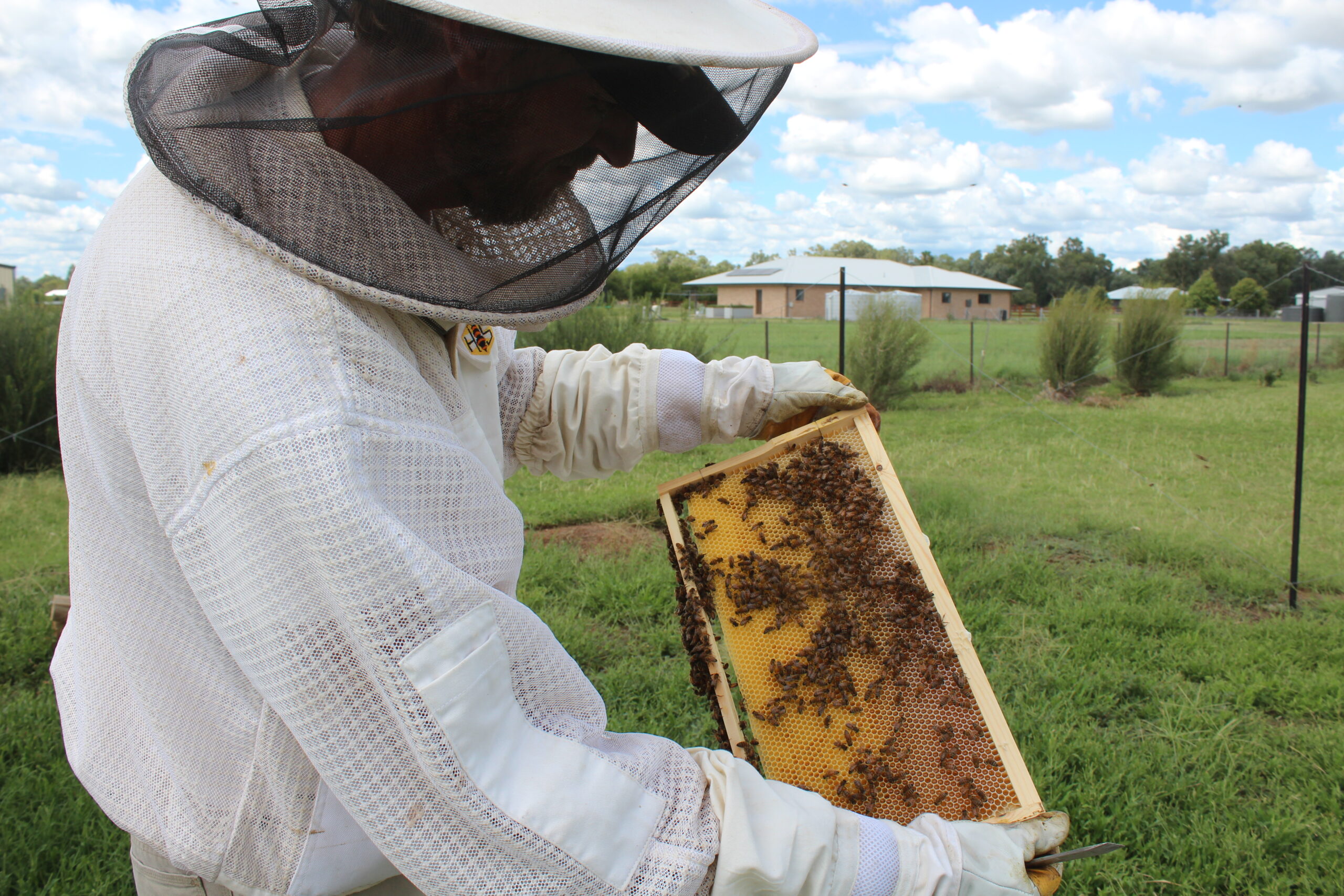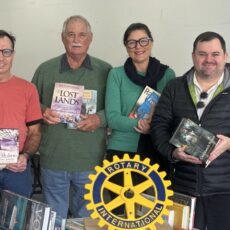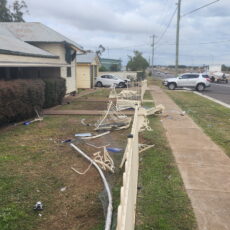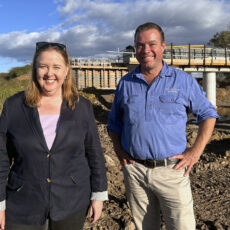Local gardening enthusiast, Dan Mapstone, has always been keen on horticulture.
Recently, this passion has developed into his taking up beekeeping.
Mr Mapstone spoke about the new hobby at the latest Narrabri Garden Club meeting and even brought in some live bees, an observation hive and his farming equipment.
He said it was wonderful to share his expertise with the keen audience.
“It was a great day. I took along some basic equipment and explained the process of how beekeeping works, as well as how a standard hive operates,” he said.
But Mr Mapstone wasn’t always a beekeeping expert.
He first started the hobby when he discovered there wasn’t a very high local bee population.
“I just noticed there wasn’t a lot of bees around to pollinate my vegie patch,” he explained.
“That’s when I started to get into beekeeping, and I guess I sort of fell down the rabbit hole because now I own 80 hives.”
He keeps just some of the 80 hives in the backyard of his family home, the rest are kept on properties elsewhere pollinating different areas.
Since the hobby took off, Mr Mapstone’s business, Apiaries, is now considered semi-commercial.
And he doesn’t plan on slowing down any time soon.
“I’m hoping, within the next five or so years, I’ll be fully commercial,” he explained.
“Which will mean I’ll take bees all around the country for work, especially to areas such as South Australia and Victoria because they have crops like almond trees that really rely on bee pollination.”
With thanks to local enthusiasts like Mr Mapstone, the Narrabri area is becoming more interested in bees, which is resulting in greater bee populations.
This is an important step forward for local ecosystems and pollination patterns.
Mr Mapstone hopes to continue educating people on the importance of bees, in a bid to spread awareness about how significant the species is.
“I actually hold field days about once a month, for people who are interested in getting into beekeeping themselves,” he said.
“Not only can I teach them the proper care and maintenance needed to look after a hive, but I can also breed and sell queen bees to anyone starting out.”
Mr Mapstone is pleased to see many people sharing his interest in beekeeping, with around 15-20 new and familiar faces showing up to each of his field days.
“I’ve noticed that it’s a hobby that’s getting more and more popular, which is great because you don’t need a ton of experience to do it,” he said.
“I can teach them the basics, and they just need to do a little research and register to keep their own hive.
“It’s quite simple so long as you understand what to do and are responsible when it comes to caring for your new bees.”
He says beekeeping has a lot to do with the weather conditions, so he’s grateful to have experienced a pleasant season recently.
“Coming out of the drought, my bees didn’t really have enough food from pollinating alone, so I had to feed them as well,” he explained.
“But, with all the recent rain, this season has been great.
“I think I’ve harvested a lot more honey than usual.”
Mr Mapstone’s honey can be purchased from the Tourist Information Centre for those interested in trying the produce for themselves.
If beekeeping seems like a hobby you’d like to try your hand at, he encourages you to get involved.
“It’s great for the environment, which is so important – we only get one Earth.”
But he also wants to remind us that strengthening the local ecosystem can be as easy as freshening up your garden.
“If you can’t own your own hives, you can help by planting some new flowers for nearby bees to pollinate.”
To order photos from this page click here










